
The future of recycling with automated solutions
As environmental awareness grows, so does the demand for advanced automation solutions for waste processing. B&R's systems are designed to withstand harsh conditions – dust, dirt, heat, cold and vibration – while ensuring sustainable operation.
Our energy-efficient control systems optimize resource utilization and streamline processes to improve sorting accuracy and throughput. With a modular design and high IP rating, our systems integrate seamlessly with mobile automation, providing the flexibility needed to meet changing sustainability challenges. B&R is leading the way to a greener, more efficient future for waste management.
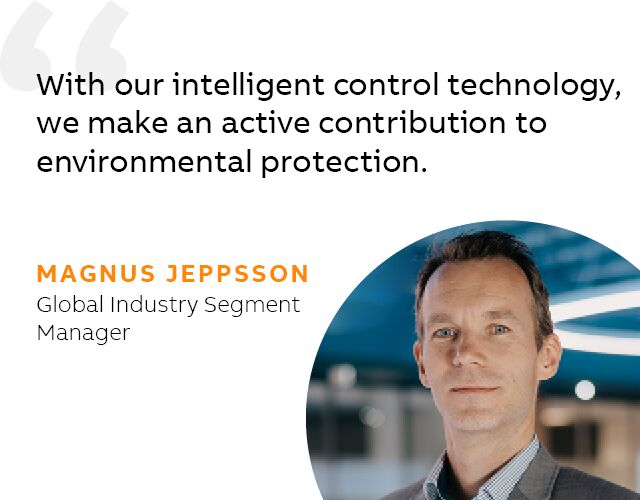


Energy efficiency and sustainability
Recycling processes require a lot of energy. Automation systems must be designed in such a way that they operate in an energy-efficient manner with high productivity. The integration of technologies that minimize energy consumption and conserve resources is of crucial importance.

Increasing complexity of waste streams
As the variety and volume of waste increases, it becomes more difficult to efficiently separate and recycle materials. Automation solutions must become more efficient to handle the complexity and provide accurate sorting.

Adaptability and flexibility
Waste and recycling processes are constantly changing due to regulatory requirements and new materials. Automation solutions must be flexible enough to respond to new requirements and quickly adapt processes.

Meeting the demands of the industry
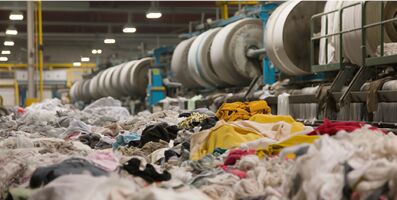
Automated solutions
Automated solutions can generate detailed reports on waste processing and recycling efficiency, helping companies meet regulatory requirements and demonstrate their commitment to sustainability. B&R's scalable, integrated automation solutions provide all the options needed to meet the demands of future machines.
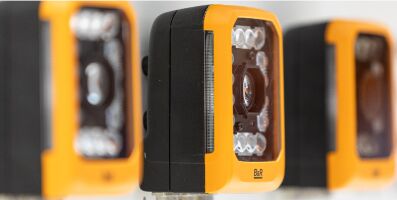
Quality control
Recycling machines equipped with advanced sensors, AI and robotics can accurately identify and sort different materials, reducing contamination and improving the quality of the recycled output. This precision is critical to producing high-quality recycled materials that can be reused in manufacturing. The automation solution provides consistent processing conditions, reducing human error and ensuring that recycled materials meet strict quality standards. Integrating B&R vision into the recycling machine increases quality and speed.

Open system architecture
Open system architecture is the key to modern machines, enabling interoperability, scalability, and cost efficiency. It integrates components from multiple vendors, allowing flexible adaptation to evolving needs. By encouraging industry collaboration, it drives innovation and reduces costs. Its adaptability ensures compatibility with new technologies and protects investments. B&R remains committed to an open ecosystem that supports the integration of third-party software.
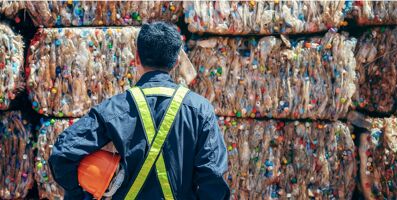
Global accessibility and collaboration
Ensuring that cutting-edge recycling technologies are accessible globally, including in developing regions, will be critical to addressing the global waste challenge. The future of recycling will depend on industry, governments and technology providers working together to share knowledge, develop new solutions and create a unified approach to sustainability. B&R has maintained a global presence and strong network for many years, enabling us to effectively meet the dynamic needs of our customers.
References – Highlights
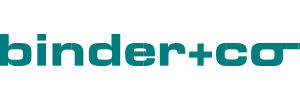
Binder+Co is your expert for processing bulk materials and offers efficient solutions, especially for materials that are difficult to screen. With sensor-based screening technology, the company sets new standards in the sorting of glass and plastics.
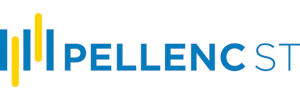
Pellenc ST is the driving force behind a sustainable circular economy: the company develops robust and user-friendly optical sorting machines for plastics, wood, metals and household waste - 100% "Made in France".
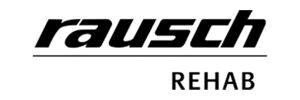
Rausch Rehab is an expert in UV curing and milling robotics for sewer rehabilitation. Through continuous research and optimization, innovative solutions for sewer rehabilitation, sewer inspection and milling robotics are developed.
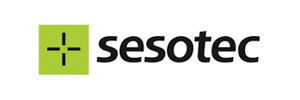
Sesotec X-ray inspection systems detect foreign objects in food. With its intelligent solutions for sorting and material analysis, the company supports high-quality production for people and the environment.

B&R – the partner for your solution: FAQs
How can automation improve the efficiency of recycling processes?
How can automation improve the efficiency of recycling processes?
Automation increases recycling efficiency by optimizing sorting, processing and material handling. It enables faster processing speeds, reduces human error and improves the accuracy of material separation, resulting in higher recovery rates and lower operating costs.
What is the role of AI in recycling machine automation?
What is the role of AI in recycling machine automation?
AI plays a crucial role by enabling intelligent sorting, predictive maintenance and process optimization. Machine learning algorithms can analyze vast amounts of data to identify patterns, optimize machine settings in real-time and predict equipment failures before they occur, reducing downtime and improving overall efficiency.
How can automated recycling equipment contribute to sustainability?
How can automated recycling equipment contribute to sustainability?
Automated recycling machines contribute to sustainability by minimizing waste, reducing energy consumption and maximizing the recovery of valuable materials. They support the circular economy by enabling continuous reuse of resources, reducing the need for virgin materials and reducing the environmental impact of waste processing.
What are the challenges of automating complex waste streams?
What are the challenges of automating complex waste streams?
Challenges include handling diverse and mixed materials, dealing with contaminants and maintaining sorting accuracy. Advanced sensors, AI, and robotics are needed to efficiently process these complex flows, requiring continued innovation and investment in automation technology to overcome these hurdles.
How can automation systems be made more resilient in harsh environments?
How can automation systems be made more resilient in harsh environments?
Automation systems can be made more resilient by using rugged components, modular designs and protective enclosures that can withstand dust, dirt, heat, cold and vibrations. In addition, systems can incorporate redundancy and fail-safe mechanisms to ensure continuous operation under extreme conditions.
How important is energy efficiency in automated recycling systems?
How important is energy efficiency in automated recycling systems?
Energy efficiency is critical to reducing the environmental impact and operating costs of recycling systems. Energy-efficient automation reduces the carbon footprint of recycling operations, aligns with sustainability goals and makes recycling processes more economical.
What advances in automation are needed to handle emerging materials such as bioplastics?
What advances in automation are needed to handle emerging materials such as bioplastics?
Advances in sensor technology, AI algorithms and processing techniques are needed to accurately identify and sort emerging materials such as bioplastics. Automated systems must be able to adapt to new material properties and process these materials without compromising efficiency or quality.
What is the future of data integration in automated recycling systems?
What is the future of data integration in automated recycling systems?
The future of data integration involves real-time data collection, analysis and decision-making through IoT-connected devices and cloud-based platforms. This enables continuous process optimization, predictive maintenance and increased visibility, leading to smarter, more efficient recycling operations.

Do you have any questions? - Talk to our industry expert.

More opportunities to contact B&R: Local partners and trade show dates

Find a partner near you
Take advantage of our global network for end customers.
In addition to more than 200 B&R subsidiaries in over 70 countries around the world, we have a global network of value providers. B&R value providers work seamlessly with B&R to bring our products and services to your location. They combine in-depth knowledge of B&R technology with a deep understanding of your local market.